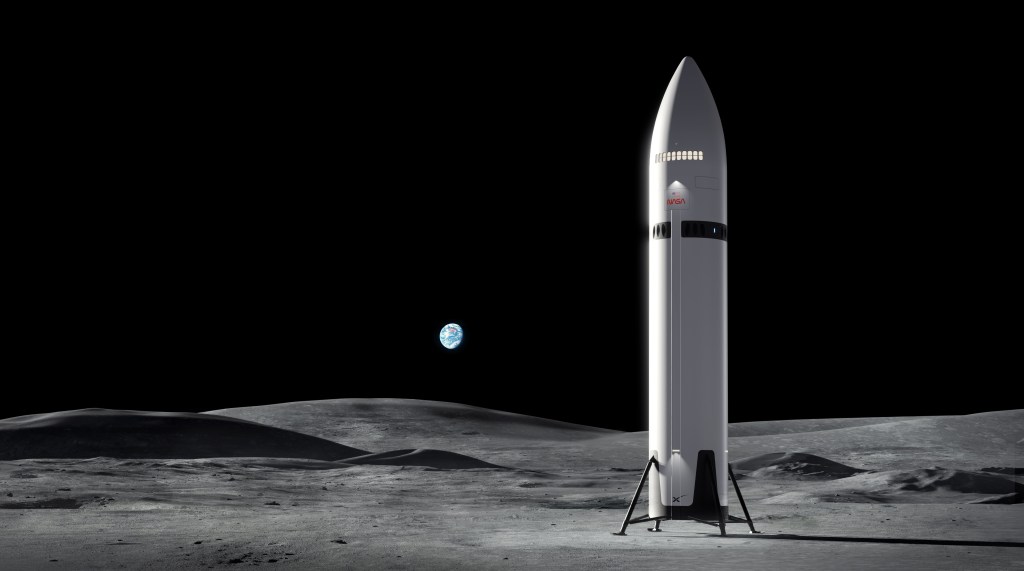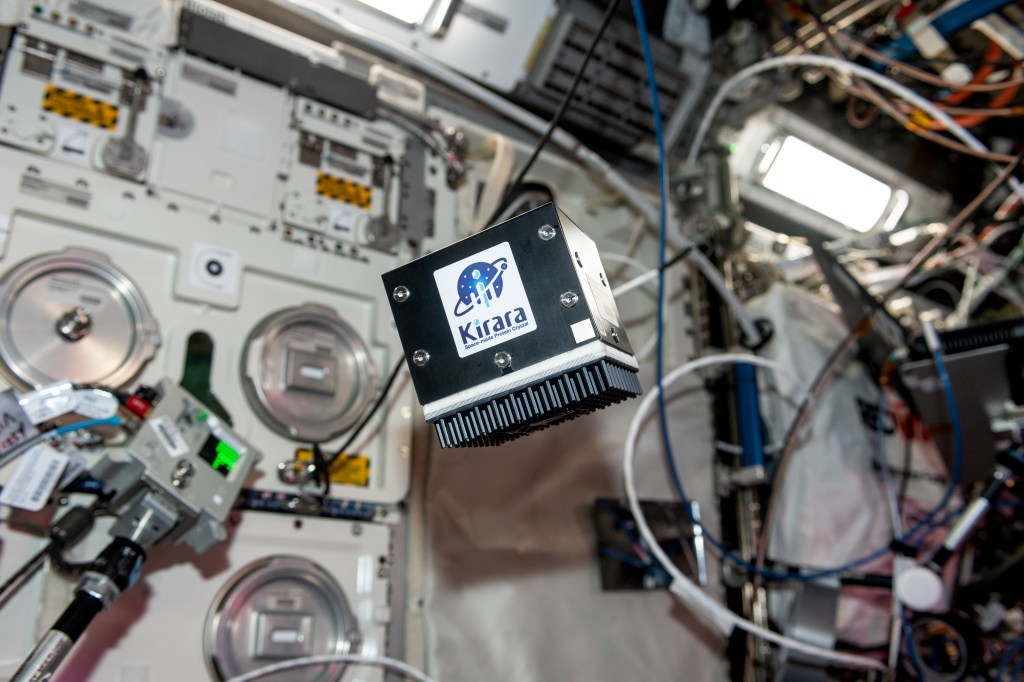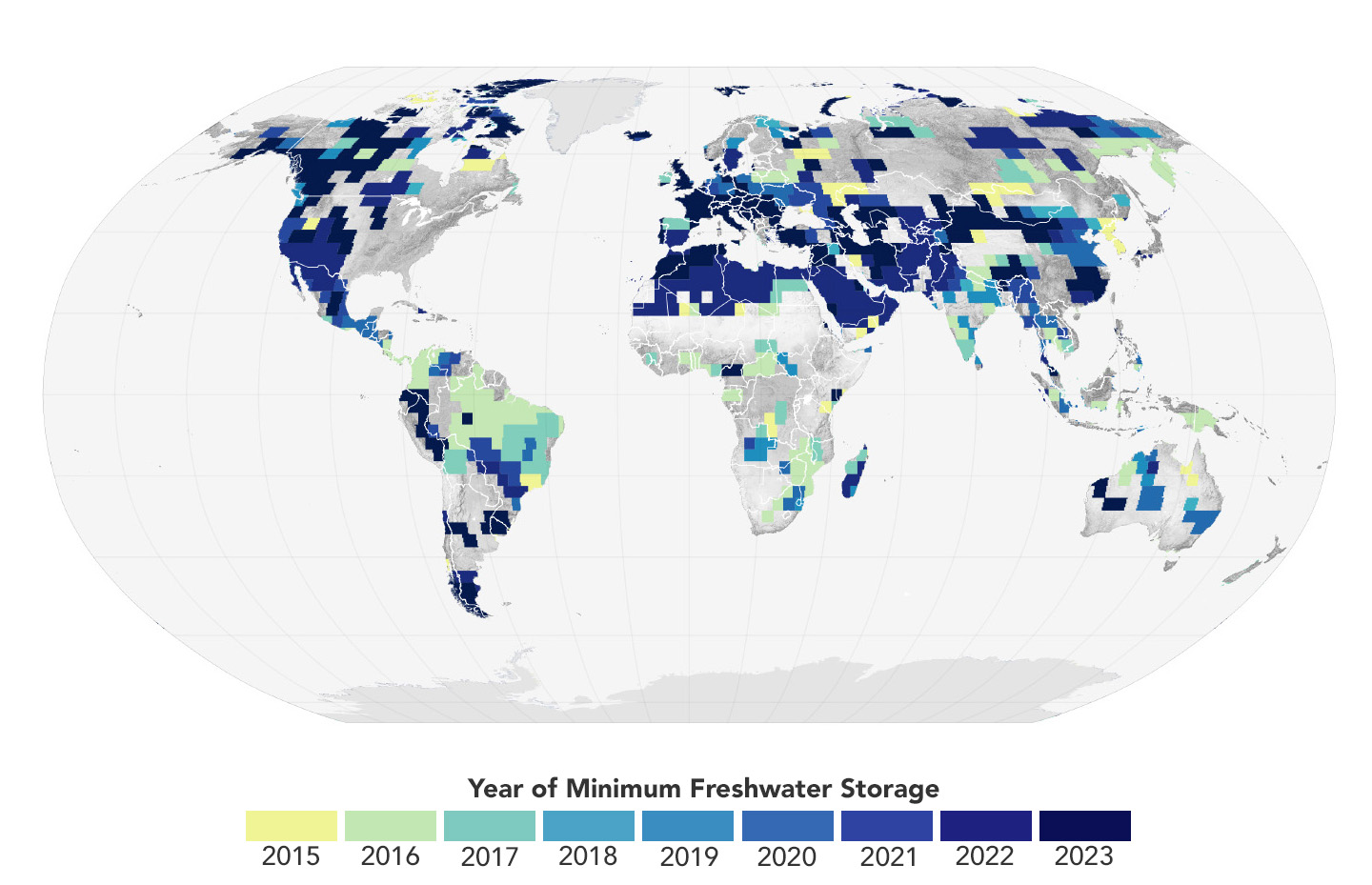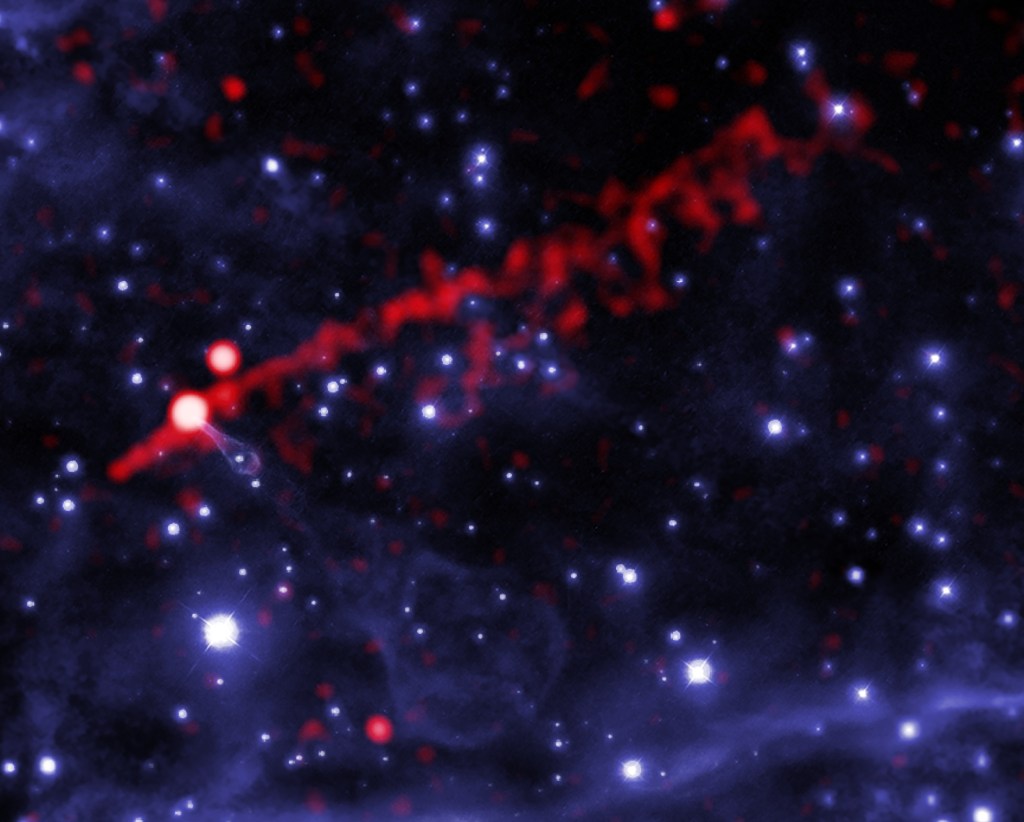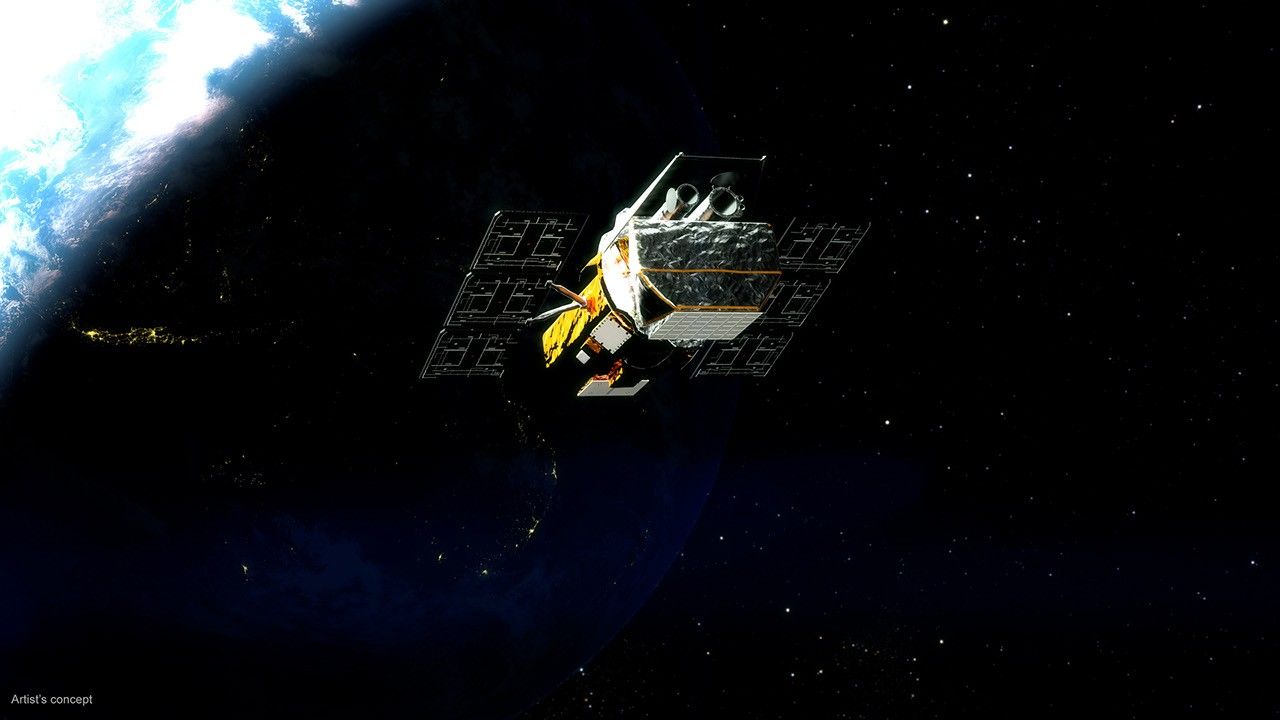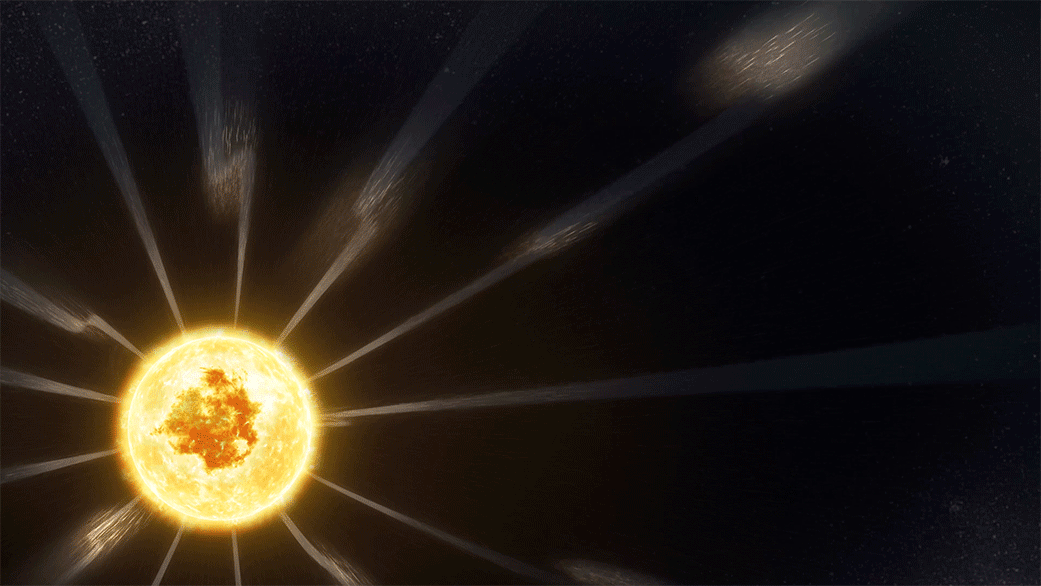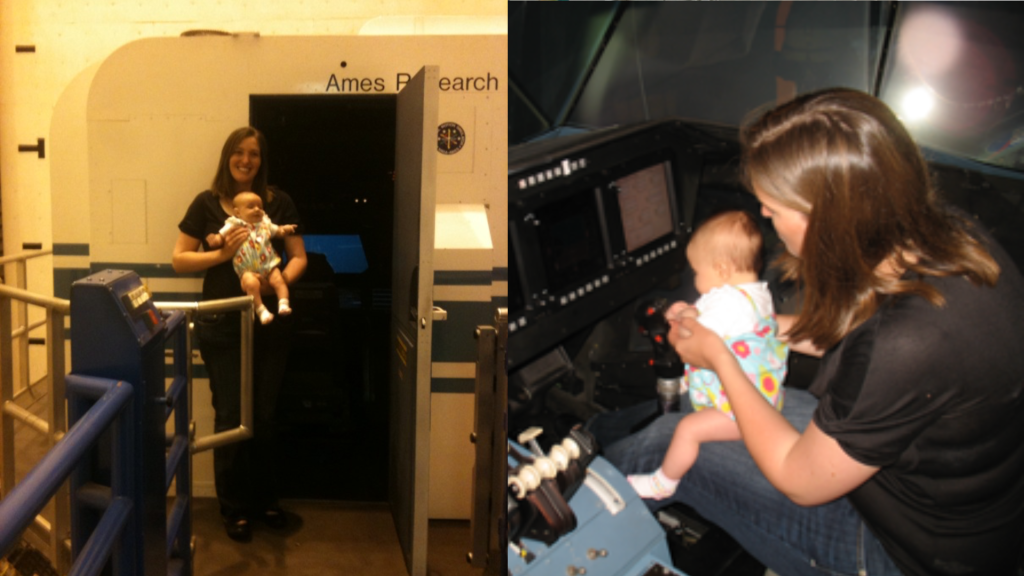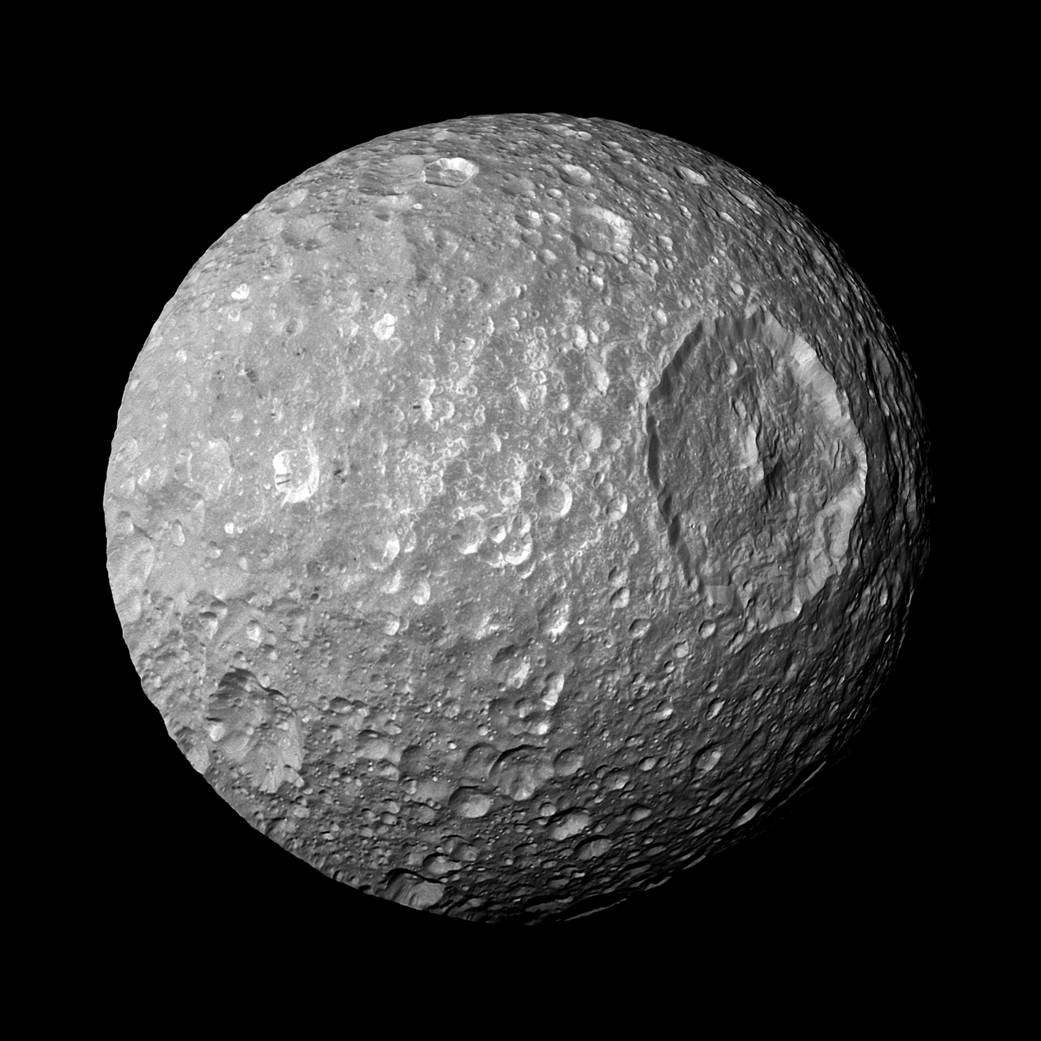In this view captured by NASA’s Cassini spacecraft on its closest-ever flyby of Saturn’s moon Mimas, large Herschel Crater dominates Mimas, making the moon look like the Death Star in the movie “Star Wars.”
Herschel Crater is 130 kilometers, or 80 miles, wide and covers most of the right of this image. Scientists continue to study this impact basin and its surrounding terrain (see PIA12569 and PIA12571).
Cassini came within about 9,500 kilometers (5,900 miles) of Mimas on Feb. 13, 2010.This mosaic was created from six images taken that day in visible light with Cassini’s narrow-angle camera on Feb. 13, 2010. The images were re-projected into an orthographic map projection. This view looks toward the area between the region that leads on Mimas’ orbit around Saturn and the region of the moon facing away from Saturn. Mimas is 396 kilometers (246 miles) across. This view is centered on terrain at 11 degrees south latitude, 158 degrees west longitude. North is up. This view was obtained at a distance of approximately 50,000 kilometers (31,000 miles) from Mimas and at a sun-Mimas-spacecraft, or phase, angle of 17 degrees. Image scale is 240 meters (790 feet) per pixel.
The Cassini-Huygens mission is a cooperative project of NASA, the European Space Agency and the Italian Space Agency. The Jet Propulsion Laboratory, a division of the California Institute of Technology in Pasadena, manages the mission for NASA’s Science Mission Directorate in Washington. The Cassini orbiter and its two onboard cameras were designed, developed and assembled at JPL. The imaging team is based at the Space Science Institute, Boulder, Colo.
For more information about the Cassini-Huygens mission visit https://www.nasa.gov/cassini and http://saturn.jpl.nasa.gov. The Cassini imaging team homepage is at http://ciclops.org.
Image Credit: NASA/JPL/SSI





